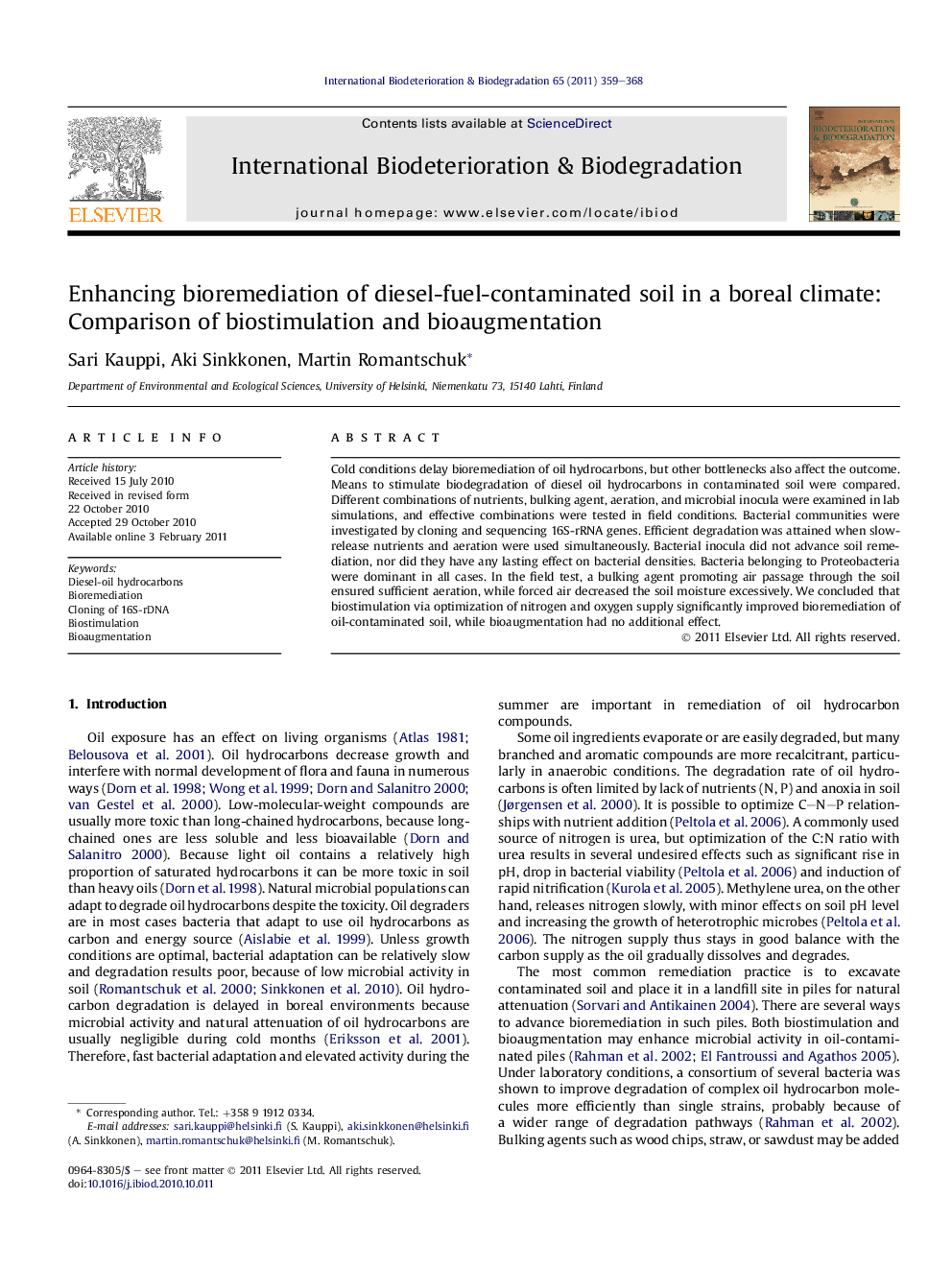| Article ID | Journal | Published Year | Pages | File Type |
|---|---|---|---|---|
| 6289544 | International Biodeterioration & Biodegradation | 2011 | 10 Pages |
Abstract
Cold conditions delay bioremediation of oil hydrocarbons, but other bottlenecks also affect the outcome. Means to stimulate biodegradation of diesel oil hydrocarbons in contaminated soil were compared. Different combinations of nutrients, bulking agent, aeration, and microbial inocula were examined in lab simulations, and effective combinations were tested in field conditions. Bacterial communities were investigated by cloning and sequencing 16S-rRNA genes. Efficient degradation was attained when slow-release nutrients and aeration were used simultaneously. Bacterial inocula did not advance soil remediation, nor did they have any lasting effect on bacterial densities. Bacteria belonging to Proteobacteria were dominant in all cases. In the field test, a bulking agent promoting air passage through the soil ensured sufficient aeration, while forced air decreased the soil moisture excessively. We concluded that biostimulation via optimization of nitrogen and oxygen supply significantly improved bioremediation of oil-contaminated soil, while bioaugmentation had no additional effect.
Related Topics
Life Sciences
Environmental Science
Environmental Science (General)
Authors
Sari Kauppi, Aki Sinkkonen, Martin Romantschuk,
